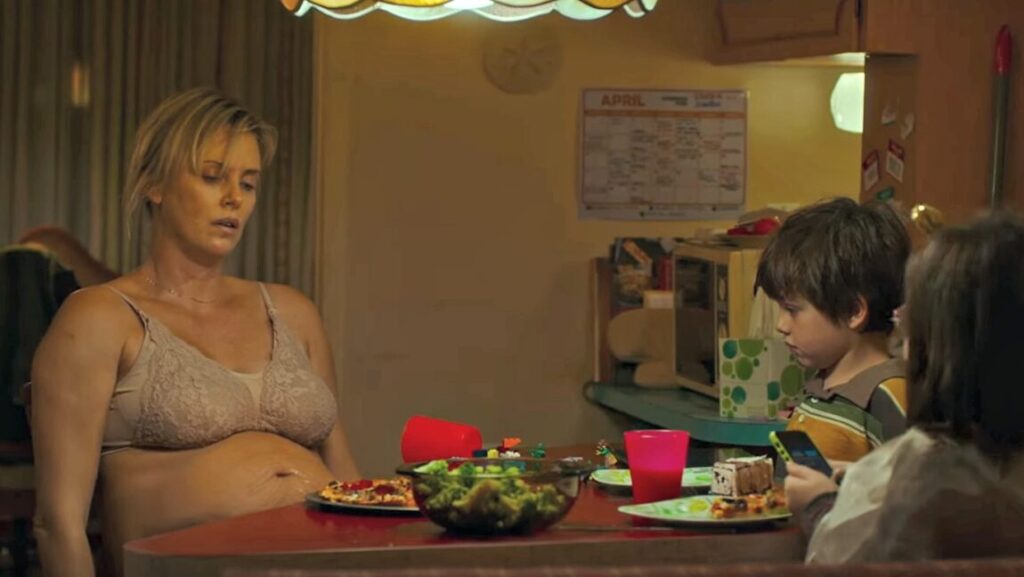Too often Hollywood wants to project the idea of motherhood as an innately beautiful thing, all soft lighting and angelic babies cooing at their beatific mothers. Tully isn’t having any of that. Jason Reitman’s film instead begins by detailing the misery of motherhood in almost excruciating detail. It’s a bracingly realistic look at the exhaustion, the anger, the guilt and sheer exasperation of taking care of little human beings. Reitman is not a particularly inspired stylist, but he’s got a knack for punchy montages and knows when to give his actors space. Charlize Theron plays put-upon mother of three Marlo, and her performance is realistic and lived-in; if it wasn’t such a cliché to say so, you could call it ‘brave.’ For Theron (and for the film as well), there’s no glamour in being a mother. You can feel Marlo’s exhaustion, the sheer effort of carrying around a newborn baby while still running after her older children. And watching Theron struggle to climb a flight of stairs is a jolting juxtaposition with, say, the stairway fight in Atomic Blonde.
But rather than deal realistically with mental health issues…Tully jettisons these concerns for easy catharsis.
Unfortunately, Tully is derailed by the introduction of the film’s title character, a night nurse whose appearance takes some of the burden off of Marlo, allowing her to sleep more. Tully (Mackenzie Davis) seems too good to be true, a kind of Manic Pixie Dream Nanny, and that’s of course by design: The film reveals that Tully is not really there, but actually a projection of Marlo’s younger self (her maiden name was Tully). This twist seems meant to make the audience rethink prior events in the film, but instead it undoes some of the hard work of establishing the reality of motherhood. The narrative has to twist and contort to keep the big reveal hidden (including one ill-advised sex scene), then resolves quickly once the audience is let in on it. Theron and Davis have a nice, easy chemistry, and Davis is charming enough that we mostly believe Marlo would let her insinuate herself into their family life. But rather than deal realistically with mental health issues, post-partum depression, an oblivious husband, a child on the spectrum, or even the slowly building friendship between an older and younger woman, Tully jettisons these concerns for easy catharsis. Daniel Gorman


Comments are closed.